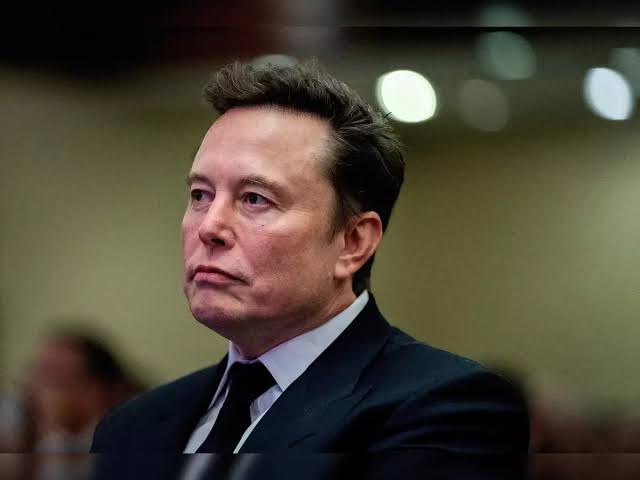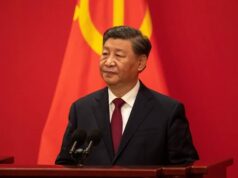Musk compares Soros to Star Wars villain after freedom award

By Damsana Ranadhiran
Tech mogul Elon Musk has once again ignited controversy by comparing billionaire philanthropist George Soros to Emperor Palpatine, the iconic villain from the Star Wars saga.
The comparison came in response to President Joe Biden’s decision to award Soros the Presidential Medal of Freedom, the highest civilian honor in the United States.
The incident has sparked widespread debate, with Musk’s remarks drawing both criticism and praise.
On January 5, Musk shared a digitally altered image on X, the social media platform formerly known as Twitter, depicting President Biden bestowing the medal on Emperor Palpatine. Musk captioned the image, “George Soros looking quite good here.
Must be the lighting.” The post quickly went viral, with millions of views and thousands of comments, fueling an already polarized discourse surrounding Soros and his global influence.
The Tesla and SpaceX CEO did not stop there. In response to a separate post that likened Soros to Magneto, a character from Marvel’s X-Men series, Musk described the award as a “travesty.”
This remark added fuel to the fire, with critics accusing Musk of perpetuating divisive rhetoric and conspiracy theories, while supporters lauded his willingness to challenge the establishment.
On the same day, President Biden announced the names of 19 individuals chosen to receive the prestigious Medal of Freedom. The honorees were celebrated for their “exemplary contributions to the prosperity, values, or security of the United States, world peace, or other significant societal, public or private endeavors.”
In his speech, Biden described the recipients as “good people” who have worked tirelessly to make the world a better place.
Among the awardees were former Secretary of State Hillary Clinton, lauded for her decades of public service, and Soros, whose philanthropic efforts through the Open Society Foundations have supported initiatives in over 120 countries.
Soros’ son, Alex, accepted the award on his father’s behalf, as the 94-year-old financier did not attend the ceremony.
In a statement released by the White House, Soros was praised for his dedication to “strengthening democracy, human rights, education, and social justice.”
Soros himself later took to social media, expressing gratitude: “As an immigrant who found freedom and prosperity in America, I am deeply moved by this honor.”
George Soros, one of the world’s most prominent philanthropists, is no stranger to controversy. Through his Open Society Foundations, Soros has poured billions of dollars into causes such as promoting democracy, human rights, and social justice. However, his activities have not been universally welcomed.
Critics have accused Soros of meddling in the political affairs of numerous countries, often pointing to his role in significant financial events.
For instance, Soros was dubbed “the man who broke the Bank of England” after his actions during the 1992 Black Wednesday crisis led to the devaluation of the British pound.
Similarly, he faced blame for contributing to Thailand’s financial crisis in 1997. These events cemented his reputation as a powerful and, to some, malevolent figure in global finance.
Through his extensive network, Soros has also been linked to political upheavals and revolutions. His foundations have faced bans in several countries, including Russia, Pakistan, and the Philippines, where authorities have accused them of fostering dissent and undermining national sovereignty.
These allegations have made Soros a frequent target of conspiracy theories, particularly from right-wing groups and leaders who view his influence as destabilizing.
Musk’s criticism of Soros is the latest example of his increasing involvement in political discourse. In recent months, the entrepreneur has emerged as a vocal supporter of Donald Trump, who is set to take office as President of the United States.
Musk’s close relationship with Trump has led to his appointment as co-head of the newly formed Department of Government Efficiency (DOGE).Musk’s political evolution has been met with mixed reactions.
While some applaud his willingness to challenge the status quo, others worry about the implications of his influence on policy and governance.
His outspoken nature and provocative social media presence have made him a polarizing figure, with many questioning whether his comments serve to foster productive dialogue or deepen existing divisions.
Musk’s comparison of Soros to Emperor Palpatine has elicited strong reactions from various quarters.
Supporters of the tech tycoon argue that his remarks highlight legitimate concerns about Soros’ influence and question the appropriateness of awarding him the Medal of Freedom.
Some view Musk’s comments as a refreshing challenge to a political and philanthropic elite they perceive as out of touch.Critics, however, see Musk’s posts as irresponsible and potentially harmful.
They argue that likening Soros to fictional villains perpetuates dangerous stereotypes and undermines the significance of the Medal of Freedom.
Prominent voices in media and politics have accused Musk of engaging in dog-whistle rhetoric that fuels antisemitic conspiracies, given Soros’ Jewish heritage and the frequent targeting of his philanthropy by hate groups.
The controversy surrounding Soros’ Medal of Freedom and Musk’s reaction underscores a growing divide in American society. It highlights the tension between those who view Soros as a champion of liberal values and those who see him as a symbol of elite overreach.
Musk’s intervention further illustrates the increasing role of influential tech figures in shaping political discourse.
This incident also raises questions about the role of philanthropy in global politics. While Soros’ supporters praise his contributions to democracy and human rights, his critics argue that his wealth grants him undue influence, often to the detriment of national sovereignty.
The debate over his legacy is likely to persist, with Musk’s remarks adding a new layer of complexity.
Elon Musk’s comparison of George Soros to a Star Wars villain has reignited debates over the billionaire philanthropist’s influence and the appropriateness of awarding him the Presidential Medal of Freedom.
While Musk’s remarks have drawn both condemnation and support, they reflect broader societal divisions and the increasingly fraught intersection of philanthropy, politics, and public perception.
As figures like Musk continue to shape public discourse, the implications of their statements will undoubtedly reverberate across political and social landscapes for years to come.




